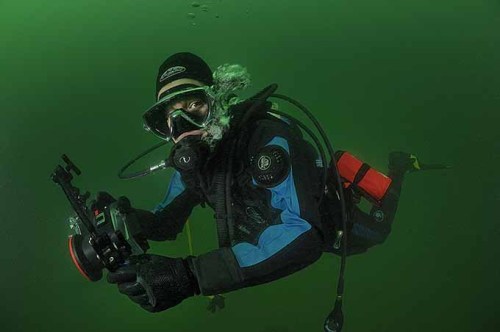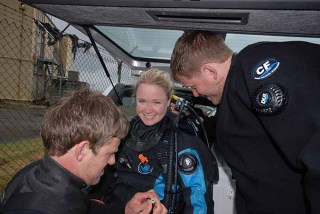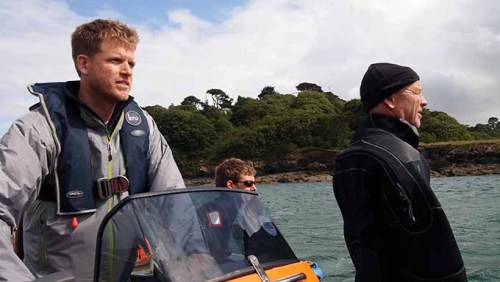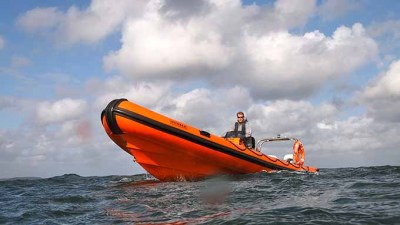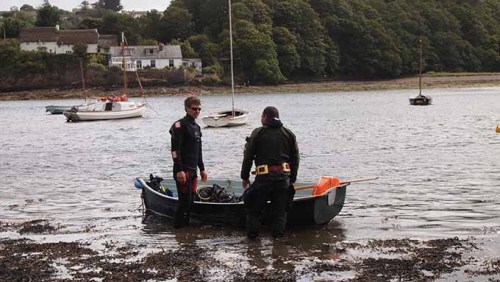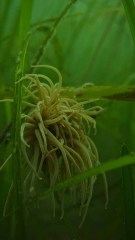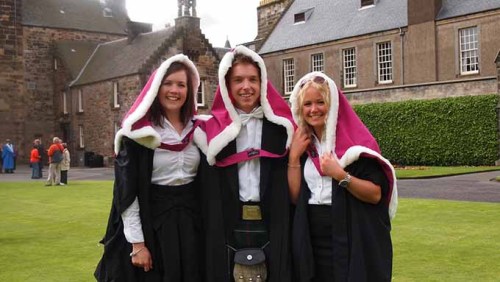The UK boasts some world-class dive spots, and yet before the start of my scholarship year I hadn’t explored even a fraction of these. The maximum water temperature in the UK is 19°C, the minimum is 4°C. Not warm! Nevertheless, I have taken it upon myself to start my scholarship year close to home…
Before embarking on my first official dive as the new European Scholar in the bracing British waters, I stopped off in the English city of Bristol. Despite being a bustling urban city, Bristol is a mini mecca of divers and wildlife photographers and filmmakers. This is thanks to PADI Europe, Middle East and Africa (PADI HQ to me), as well as the BBC Natural History unit, being based here. Hence my visit.
Richard Somerset, the second European scholar and now employed at PADI HQ, was my first host, along with his lovely family. I was given a tour of PADI HQ where I met a lot of the team who work “behind the scenes” of diving, making diving happen for so many of us. During my visit I managed to fit in an Emergency Oxygen Provider course -a quick but potentially lifesaving course. Undoubtedly the ability to provide emergency oxygen is a skill every diver should have.
After parting ways with Richard I went on to spend a couple of days learning the basics of photography and filmmaking with the legendary wildlife filmmaker Doug Allan. I feel describing Doug as an expert in his field does not do him justice. He has a knowledge and demeanor that he can bestow upon even the most novice of filmmakers such as myself, and make great filmmaking seem achievable. Photography and filmmaking undeniably need an artistic eye, and whether I have that remains to be seen. However, what I have learned from Doug has made me confident that I can tackle my photographic and filmmaking tasks over the coming year with an understanding of what can be achieved. Knowing both how to use my equipment, and what I want to achieve overall, is half the battle, and Doug has been key in helping me understand this.
Doug also introduced me to ex BBC newsreader John McIntyre. Now a freelance underwater journalist/filmmaker, John provided a valuable insight into how to make short documentary style films. For example, the best post dive reactions come as soon as a diver surfaces. Thus, if I want to document my own, or another diver’s reaction, the camera has to be ready to capture myself, or them, asap. John will forgo a dive in order to be ready to capture such a moment. I may have to find a willing boat passenger come filmmaker…
And the expertise did not end there! Joe Stevens: European Scholar Number 1 – now a renowned wildlife filmmaker – jumped on board to help me get to grips with filmmaking, and living life as a scholar. Together with Doug, the three of us travelled down to Cornwall from Bristol. Unfortunately plans to dive off Lundy Island – England’s first statutory Marine Nature Reserve – were hampered by poor weather conditions. This is an all to prominent factor to contend with when diving in Britain. However, there was no diving to be lost that weekend – my scholarship coordinator Jim Standing had plans afoot.
Jim and his lovely wife Leo became our last minute hosts for the weekend and by Saturday morning we were diving off the Cornish coast. And we had another expert in tow! Rene Lipmann, editor of Dutch dive magazine “duiken”, was joining us for the weekend. The opportunities the scholarship affords you are nothing short of astonishing sometimes, and diving with Jim, Rene, Doug and Joe was one such opportunity. Not only was I kitted out from head to toe with the warmest thermals, courtesy of the clever guys at Fourth Element, I was surrounded by some of the most proficient and knowledgeable divers in the world. Guess who managed to end up bobbing upside down and looking like a tool….
Well, part of my aim for the weekend was to get used to diving in a drysuit and thankfully by the end of the weekend I was no longer bobbing upside down. The kind loan of a pair of gaiters from Leo did wonders for any previous inversion issues. I did start off thinking the whole drysuit thing could prove a bit too much of a kafuffle, but it turns out it just takes a bit of getting used to. In-fact, by the end of the weekend I was really enjoying the drysuit, not least because I was warm. I have experience UK diving in a wetsuit, and I would never go back. However, I don’t think I will ever get used to the feeling of surfacing from a dive and taking off a drysuit and being, well, dry! Surreal.
So having mastered – or perhaps “gotten more used to” the drysuit, I started focusing on my photography skills. Rene was a great teacher for this. He is a patient yet zealous diver. He taught me how to make the most of every dive and how to think like a photographer. Having the vision and logic to know what can make a good shot is very important. I discovered not only how to spot a good subject, but also how to acknowledge when what may seem like a perfect subject won’t be due to impossible positioning, angles etc. My dives with Rene, in what many divers would dismiss as rather ordinary dive sites, became some of the most extraordinary dives of my life and I discovered a real delight in underwater photography.
My Cornish diving adventures had to come to an end and I had to make the long train ride back up to Scotland for my graduation ceremony. My last few days in St Andrews, where I have lived, worked and studied for the past four years, were unforgettable. Sir David Attenborough was at my graduation ceremony where he received an honorary degree. Graduating in front of such an esteemed figure was a moment to treasure for all of us. The remaining few days were taken up with some good old St Andrews must-dos: pier jumping into the North Sea and eating fish and chips in Anstruther were just some. Now I am no longer a student and I have moved away from St Andrews, but I have plenty to keep me busy…
